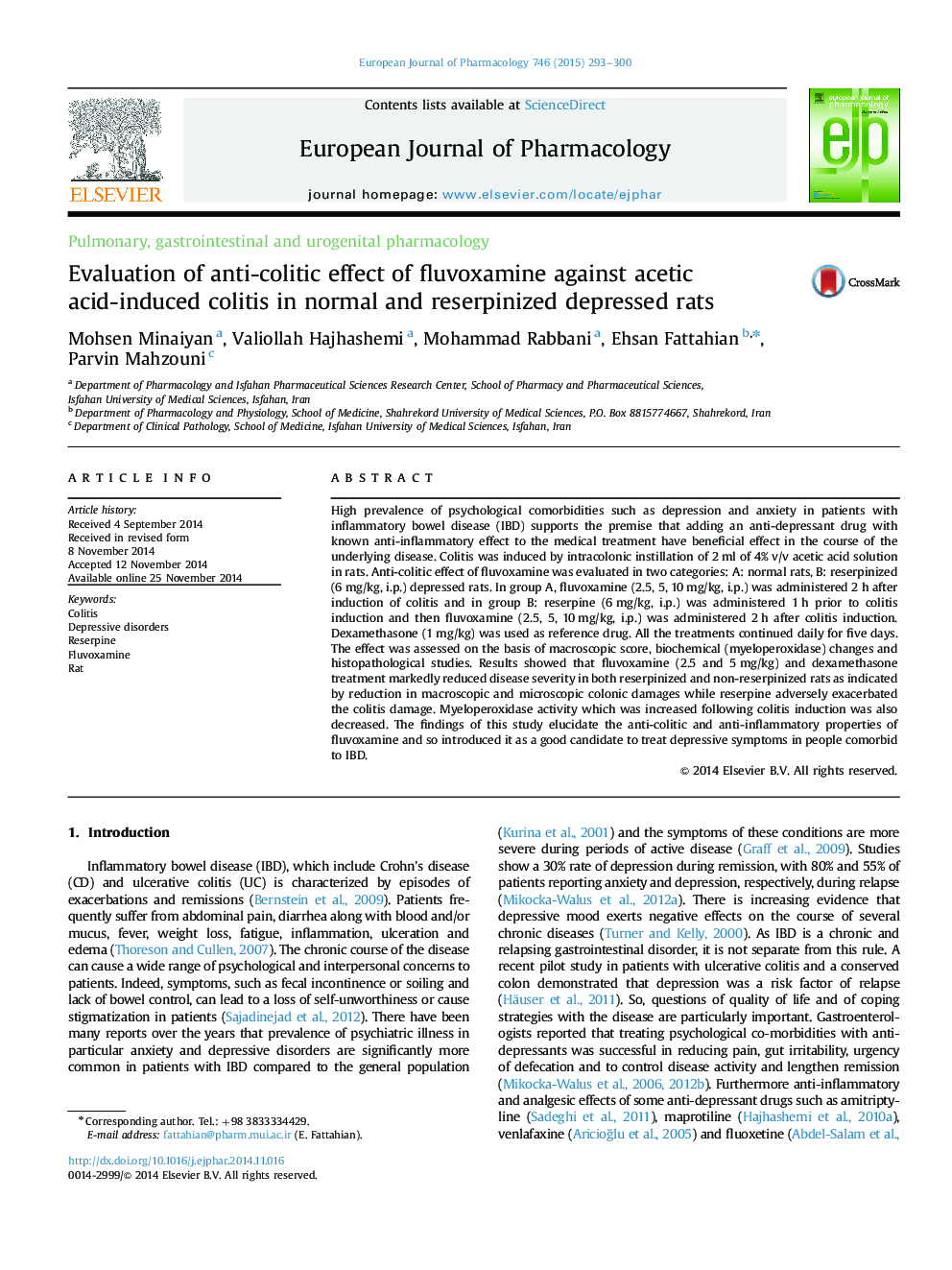| Article ID | Journal | Published Year | Pages | File Type |
|---|---|---|---|---|
| 2531581 | European Journal of Pharmacology | 2015 | 8 Pages |
High prevalence of psychological comorbidities such as depression and anxiety in patients with inflammatory bowel disease (IBD) supports the premise that adding an anti-depressant drug with known anti-inflammatory effect to the medical treatment have beneficial effect in the course of the underlying disease. Colitis was induced by intracolonic instillation of 2 ml of 4% v/v acetic acid solution in rats. Anti-colitic effect of fluvoxamine was evaluated in two categories: A: normal rats, B: reserpinized (6 mg/kg, i.p.) depressed rats. In group A, fluvoxamine (2.5, 5, 10 mg/kg, i.p.) was administered 2 h after induction of colitis and in group B: reserpine (6 mg/kg, i.p.) was administered 1 h prior to colitis induction and then fluvoxamine (2.5, 5, 10 mg/kg, i.p.) was administered 2 h after colitis induction. Dexamethasone (1 mg/kg) was used as reference drug. All the treatments continued daily for five days. The effect was assessed on the basis of macroscopic score, biochemical (myeloperoxidase) changes and histopathological studies. Results showed that fluvoxamine (2.5 and 5 mg/kg) and dexamethasone treatment markedly reduced disease severity in both reserpinized and non-reserpinized rats as indicated by reduction in macroscopic and microscopic colonic damages while reserpine adversely exacerbated the colitis damage. Myeloperoxidase activity which was increased following colitis induction was also decreased. The findings of this study elucidate the anti-colitic and anti-inflammatory properties of fluvoxamine and so introduced it as a good candidate to treat depressive symptoms in people comorbid to IBD.
